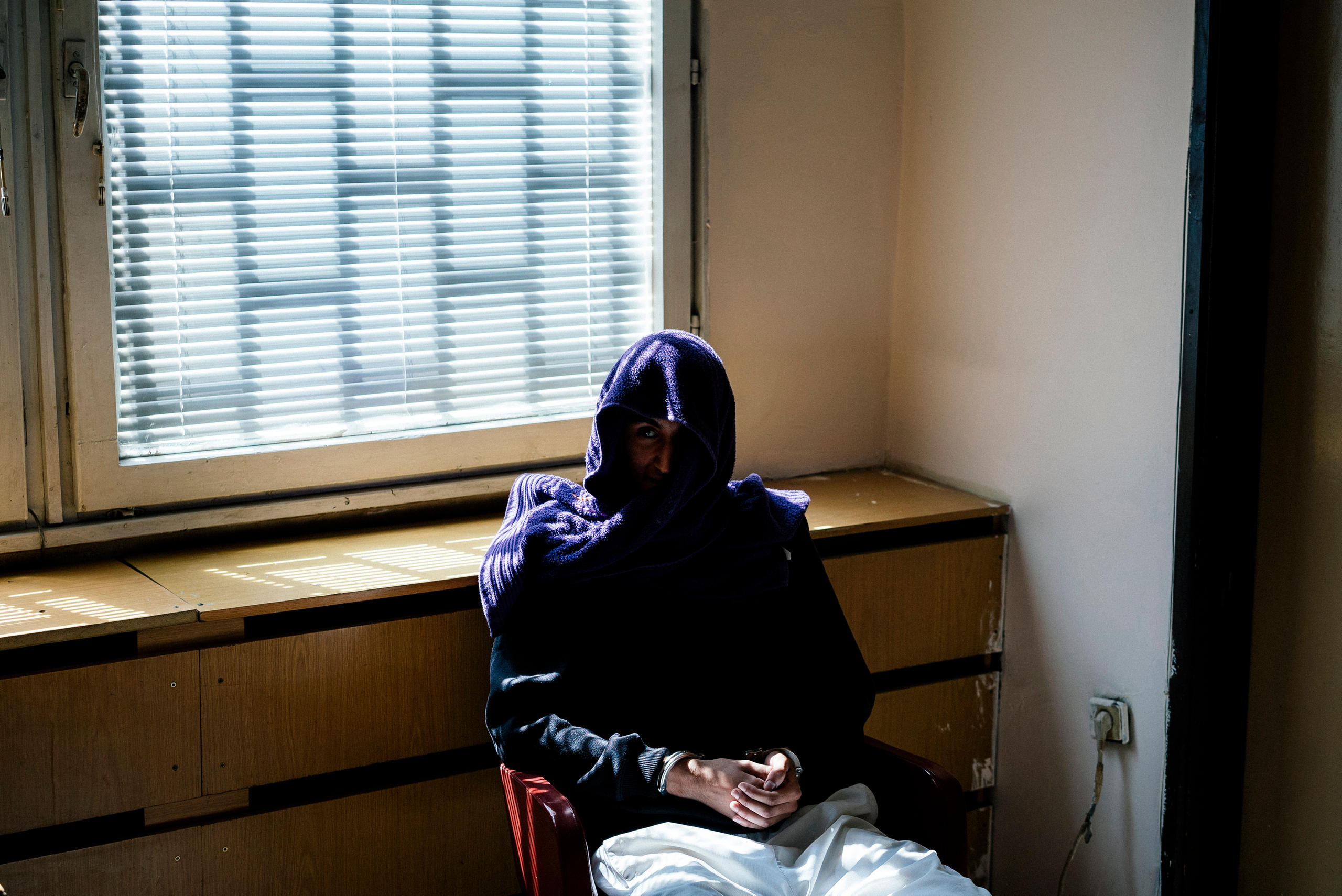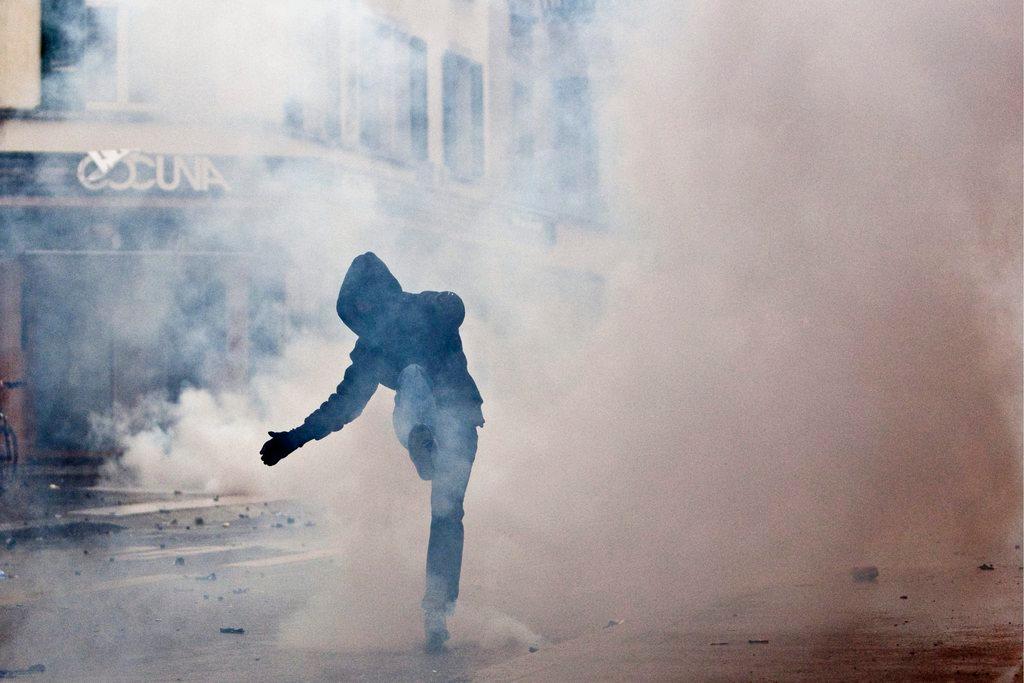The citizens that Switzerland would like to disown

Should a young dual citizen be stripped of his Swiss passport after going to fight for the Islamic State in Syria? Authorities are considering the possibility, but the effectiveness of such measures is up for debate.
Politicians across Europe have called for similar legislation, most recently in FranceExternal link, GermanyExternal link and the Netherlands.External link Switzerland is no exception, with parliament having discussed the issue at length. Ultimately, the House of Representatives approved a parliamentary initiative from the conservative right Swiss People’s Party to automatically withdraw citizenship from dual national jihadis, but the Senate threw the proposal out in June.
A ‘radical’ measure
Meanwhile, behind the scenes, the government is considering measures similar to those proposed in Germany.
Withdrawal of citizenship is historically associated with dictatorships and the emergency powers introduced in wartime. Between 1940 and 1952, 86 people had their Swiss passports withdrawn for security reasons. One of the most recent cases was in 1945, concerning a citizen of canton Obwalden who had joined the Nazi party in Germany.
Since 1953, there have been no cases of Swiss citizens by birth being stripped of their citizenship. But Article 41 of the Swiss Citizenship Law, which provides for the cancellation of naturalisation if this status was acquired fraudulently, has been invoked more frequently: between 2006 and 2015, 567 people had their passports withdrawn retroactively, whether or not they were also citizens of another country.
“We are examining whether it would be possible, in specific cases, to withdraw Swiss citizenship from a person of dual nationality who goes off to jihad,” says Léa Wertheimer, a spokeswoman for the State Secretariat for MigrationExternal link (SEM). “Following the withdrawal of the person’s passport, the federal police (Fedpol) could then ban the person from re-entering the country and deal with the direct threat they pose to Switzerland.”
Automatically withdrawing citizenship would go against the rule of law, and Wertheimer agrees that stripping a person of their nationality is, in any case, a “radical measure”. She says the government’s proposal would be used on a case-by-case basis, “applied only after painstaking investigation and in exceptional circumstances”.
The proposal is based on a never-before-used provision of the Swiss Citizenship LawExternal link introduced in 1953. It says that the Swiss government may withdraw citizenship from a person of dual nationality whose behaviour causes “serious damage to the interests or reputation of Switzerland”. But according to the migration office, the provision can only be used in extremely serious circumstances such as atrocities or war crimes, or if the person concerned represents a real threat to Switzerland.
Posing with a severed head
Christian I., a resident of Winterthur in canton Zurich, could lose his Swiss citizenship in a procedure now underway. According to press reports, the Swiss-Italian dual national joined the Islamic State in Syria in February 2015. The 19-year-old, who now goes by the names “Abu Malik Dawla” or “Abu al-itali”, has posted photographs online of him holding the severed head of one of his victims.
There are contradictory reports about the fate of Christian I., since he was reported dead soon after his arrival in Syria. But experts say it may have been a move on the part of Islamic State to deceive the European security services. For its part, the SEM confirms that the process of withdrawing his nationality is still ongoing.

The procedure could take time, with many legal obstacles along the way. But if completed, it could set a precedent for other cases: of the 77 would-be jihadis estimated to have left Switzerland as of July, 17 hold dual nationality.
How effective?
Like in other parts of Europe, the Swiss political class is divided over the effectiveness and validity of stripping a person of citizenship.
“Someone who goes off to fight for Islamic State and commits unspeakable atrocities effectively renounces his membership in the Swiss community,” argues parliamentarian Philippe Nantermod of the centre-right Radical Party.
To him, the measure is more than a symbolic gesture since it prevents people who are a danger to national security from returning to Switzerland. “Swiss citizens definitely do not want to provide welfare for people who have committed such abominations,” he adds.
But not all his party colleagues agree. When questioned by the Tages-Anzeiger newspaper, Radical Party Senator Andrea Caroni expressed doubt over how far withdrawing citizenship could go towards ensuring national security. He pointed out that jihadis often travel with counterfeit documents and that they may renounce one of their citizenships on their own initiative. Caroni also argues that withdrawing a passport from a dual national is a selfish act, since “the country that acts first passes the burden to the other”.
Primarily a European phenomenon
Those on the political Left are wary of the question of withdrawing citizenship, especially since the minister responsible for the matter, the Social Democrat Simonetta Sommaruga, is one of their own. Fellow party member Cesla Amarelle, who heads up the House of Representatives’ Political Institutions Committee, made it clear to swissinfo.ch that she prefers not to comment on the issue.
For his part, parliamentarian Cédric Wermuth, also of the Social Democrats, was quick to point out that the measure would be counter-productive.
“It is obvious that a person prepared to die for their beliefs and ideology would not be dissuaded from this course of action by the withdrawal of their passport,” he said. “This measure will only complicate international cooperation in combating Islamist terrorism.”
And, he argues, it sends a dangerous political signal to Switzerland’s second-generation immigrants.
“Islamist terrorism is primarily a European phenomenon. These people have grown up and been educated here,” Wermuth says.
“Instead of turning a blind eye to the reality and claiming we have no responsibility, we need to ask ourselves how such cases of personal failure are possible in our liberal, democratic and open societies. And if these people have committed punishable acts, they should answer for them before a Swiss court of law.”
The State Secretariat for Migration (SEM) has also taken an interest in the case of Erwin Sperisen, former chief of police in Guatemala, who was convicted and imprisoned in Switzerland for crimes committed in Guatemala.
If his passport were to be withdrawn, Sperisen would be extradited to Guatemala at the end of his prison term. According to a legal opinion drafted by Professor Alberto Achermann, of which swissinfo.ch has obtained a copy, it is unlikely that the conditions for the withdrawal of his passport will be met, since Sperisen presents no immediate danger or serious threat to Switzerland.
Although he is a dual Swiss and Guatemalan national, no procedure is underway to withdraw his Swiss citizenship, emphasises the SEM. However, the agency refuses to say whether the idea has been completely abandoned.
Translated from French

In compliance with the JTI standards
More: SWI swissinfo.ch certified by the Journalism Trust Initiative
















You can find an overview of ongoing debates with our journalists here . Please join us!
If you want to start a conversation about a topic raised in this article or want to report factual errors, email us at english@swissinfo.ch.